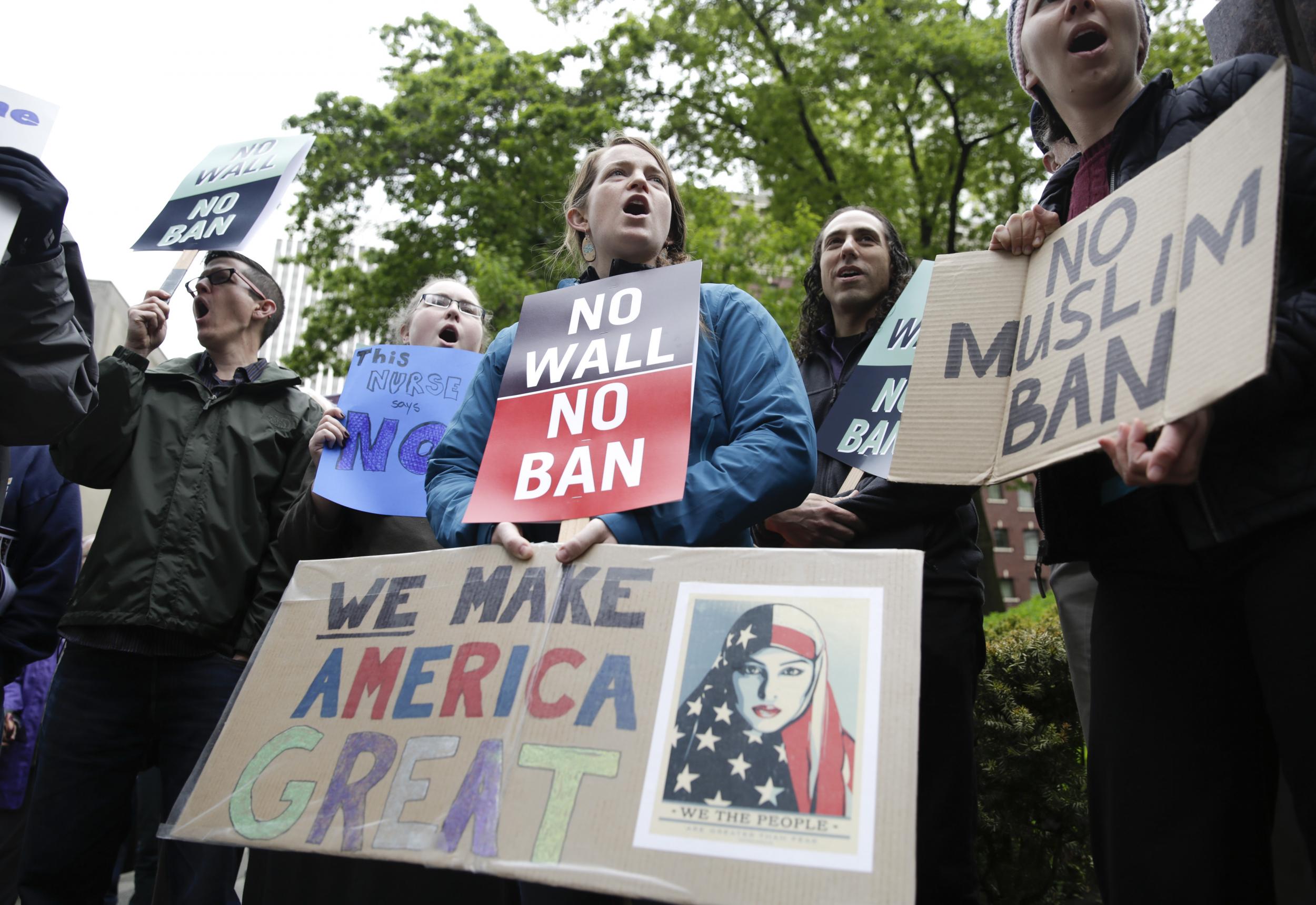Donald Trump calls Supreme Court's decision on his Muslim travel ban 'a clear victory'
The Supreme Court will hear oral arguments related to the ban in the fall

Your support helps us to tell the story
From reproductive rights to climate change to Big Tech, The Independent is on the ground when the story is developing. Whether it's investigating the financials of Elon Musk's pro-Trump PAC or producing our latest documentary, 'The A Word', which shines a light on the American women fighting for reproductive rights, we know how important it is to parse out the facts from the messaging.
At such a critical moment in US history, we need reporters on the ground. Your donation allows us to keep sending journalists to speak to both sides of the story.
The Independent is trusted by Americans across the entire political spectrum. And unlike many other quality news outlets, we choose not to lock Americans out of our reporting and analysis with paywalls. We believe quality journalism should be available to everyone, paid for by those who can afford it.
Your support makes all the difference.President Donald Trump cheered the Supreme Court's unanimous decision to allow portions of his administration's controversial travel to be implemented, kicking a final decision down the road until the fall.
"Today's unanimous Supreme Court decision is a clear victory for our national security. It allows the travel suspension for the six terror-prone countries and the refugee suspension to become largely effective", Mr Trump said in a statement provided by the White House. "As President, I cannot allow people into our country who want to do us harm. I want people who can love the United States and all of its citizens, and who will be hardworking and productive".
Lower courts had largely blocked the travel ban since March, when the administration attempted to put the second travel ban into place. Those courts cited statements made by Mr Trump during the 2016 campaign and after, saying that his comments made it appear as though the ban were based on religious concerns, and would be in violation of religious protections provided in the Constitution. The Supreme Court did not cite those statements, and instead noted that Mr Trump has a vested interest in protecting national security as president.
The Supreme Court's decision allows the travel ban to go into effect for foreign nationals who don't have a "bona fide relationship with any person or entity in the United States". The opinion was unsigned, but was agreed to by the entire court. Foreign nationals from six majority-Muslim countries will be barred from entering the United States for 90 days. The ban could be put in place in as little as 72 hours following the Supreme Court's decision.
"My number one responsibility as Commander in Chief is to keep the American people safe. Today's ruling allows me to use an important tool for protecting our Nation's homeland. I am also particularly gratified that the Supreme Court’s decision was 9-0", the President wrote in his statement.
Foreign nationals from Iran, Libya, Somalia, Sudan, Syria, and Yemen will be blocked from entering the US unless they have the "bona fide relationship" within the US.
That foreign nationals from those countries pose a particular threat to the United States is not at all clear. Internal data sets and reports from the White House have indicated that the administration's argument for the travel ban isn't backed up by empirical reasoning. An analysis of roughly 90 cases of foreign-born terrorists found that most had probably embraced extremist ideologies after entering the US, not before, according to one White House study.
Another, drawing on FBI data, demonstrates that the administration's argument for restricting refugee admission - which would be stopped for 120 days under the ban - is also flawed. The report indicates that most issues related to refugees don't actually come from the countries impacted by Mr Trump's ban, and so that restriction would have no impact on those other countries.
Join our commenting forum
Join thought-provoking conversations, follow other Independent readers and see their replies
Comments